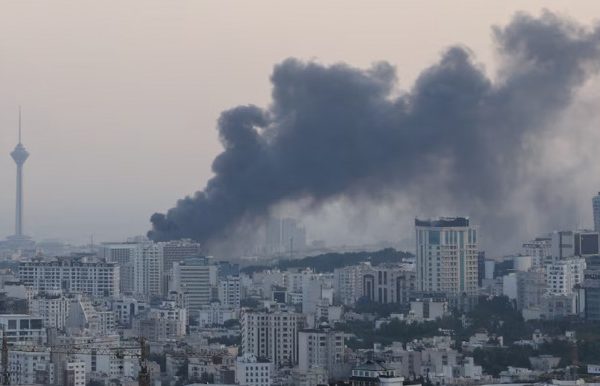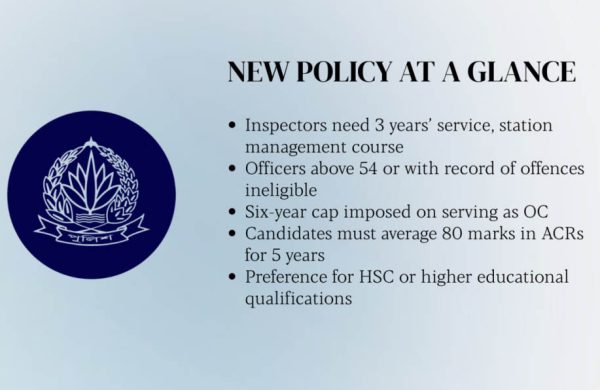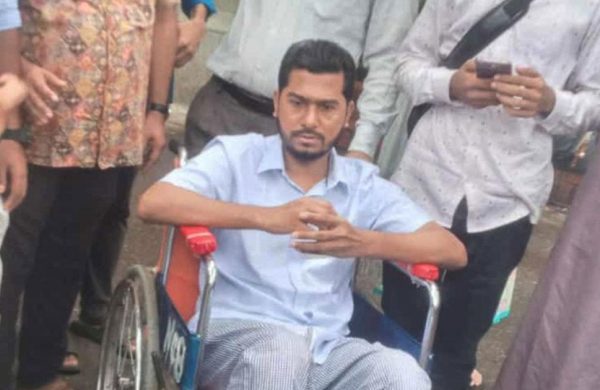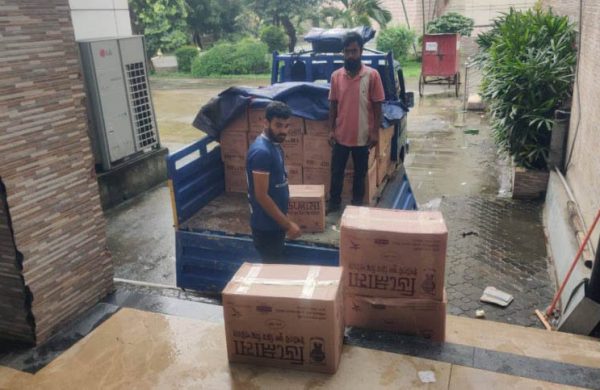Iran says no nuclear talks under Israeli fire, Trump considers options
- Update Time : Friday, June 20, 2025

Int’l Desk
Iran said on Friday it would not discuss the future of its nuclear programme while under attack by Israel, as Europe tried to coax Tehran back into negotiations and the United States considers whether to get involved in the conflict.
A week after it began attacking Iran, Israel’s military said it had carried out new strikes on dozens of military targets overnight, including missile production sites and a research organisation involved in nuclear weapons development in Tehran.
Iran launched at least one new barrage of missiles early on Friday, striking near residential apartments, office buildings and industrial facilities in the southern city of Beersheba.
The White House said on Thursday that President Donald Trump would decide on “whether or not to go” with US involvement in the conflict in the next two weeks, citing the possibility of negotiations involving Iran in the near future.
Iranian Foreign Minister Abbas Araqchi said on Friday there was no room for negotiations with Israel’s superpower ally the United States “until Israeli aggression stops”.
But he was due to meet European foreign ministers in Geneva later on Friday for talks at which Europe hopes to establish a path back to diplomacy over Iran’s nuclear programme.
Two diplomats said before the meeting involving France, Britain, Germany and the European Union’s foreign policy chief that Araqchi would be told the US is still open to direct talks. Expectations for a breakthrough are low, diplomats say.
Israel began attacking Iran last Friday, saying its longtime enemy was on the verge of developing nuclear weapons. Iran, which says its nuclear programme is only for peaceful purposes, retaliated with missile and drone strikes on Israel.
Israel is widely assumed to possess nuclear weapons. It neither confirms nor denies this.
Israeli air attacks have killed 639 people in Iran, according to the Human Rights Activists News Agency, a US-based human rights organisation that tracks Iran. The dead include the military’s top echelon and nuclear scientists.
Israel has said at least two dozen Israeli civilians have been killed in Iranian missile attacks.
Reuters could not independently verify the death toll from either side. Details of casualties in the latest strikes were not immediately known.
CIVILIANS KILLED
Both sides say they are attacking military and defence-related targets, but civilians have also been caught in the crossfire and each has accused the other of hitting hospitals.
An Iranian news website said a drone had struck an apartment in a residential building in central Tehran on Friday, but did not give details.
Israel’s strikes on Iran’s nuclear installations so far pose only limited risks of contamination, experts say. But they warn that any attack on the nuclear power station at Bushehr could cause a nuclear disaster.
Israel says it is determined to destroy Iran’s nuclear capabilities but that it wants to avoid any nuclear disaster in a region that is inhabited by tens of millions of people and produces much of the world’s oil.
The meeting in Geneva was due to start on Friday afternoon. The Swiss city is where an initial accord was struck in 2013 to curb Iran’s nuclear programme in return for sanctions being lifted. A comprehensive deal followed in 2015.
Trump pulled the US out of the agreement in 2018. A new series of talks between Iran and the US collapsed when Israel launched what it called Operation Rising Lion against Iran’s nuclear facilities and ballistic capabilities on June 12.
Trump has alternated between threatening Tehran and urging it to resume nuclear talks. His special envoy to the region, Steve Witkoff, has spoken to Araqchi several times since last week, sources say.
The Middle East has been on edge since the Palestinian militant group Hamas attacked it in October of 2023, triggering the Gaza war, and Israel has been fighting on several fronts against Iran’s regional allies.
Israeli Foreign Minister Israel Katz warned on Friday of further action against Iranian ally Hezbollah, a day after the Lebanese militant group suggested it would come to Iran’s aid.
Western and regional officials say Israel is trying to shatter the government of Supreme Leader Ayatollah Ali Khamenei.
Prime Minister Benjamin Netanyahu said on Thursday “the downfall of the regime … may be a result, but it’s up to the Iranian people to rise for their freedom.”
Iranian opposition groups think their time may be near, but activists involved in previous protests say they are unwilling to unleash mass unrest with their nation under attack, and Iranian authorities have cracked down hard on dissent.
“How are people supposed to pour into the streets? In such horrifying circumstances, people are solely focused on saving themselves, their families, their compatriots, and even their pets,” said Atena Daemi, a prominent activist who spent six years in prison before leaving Iran.
















